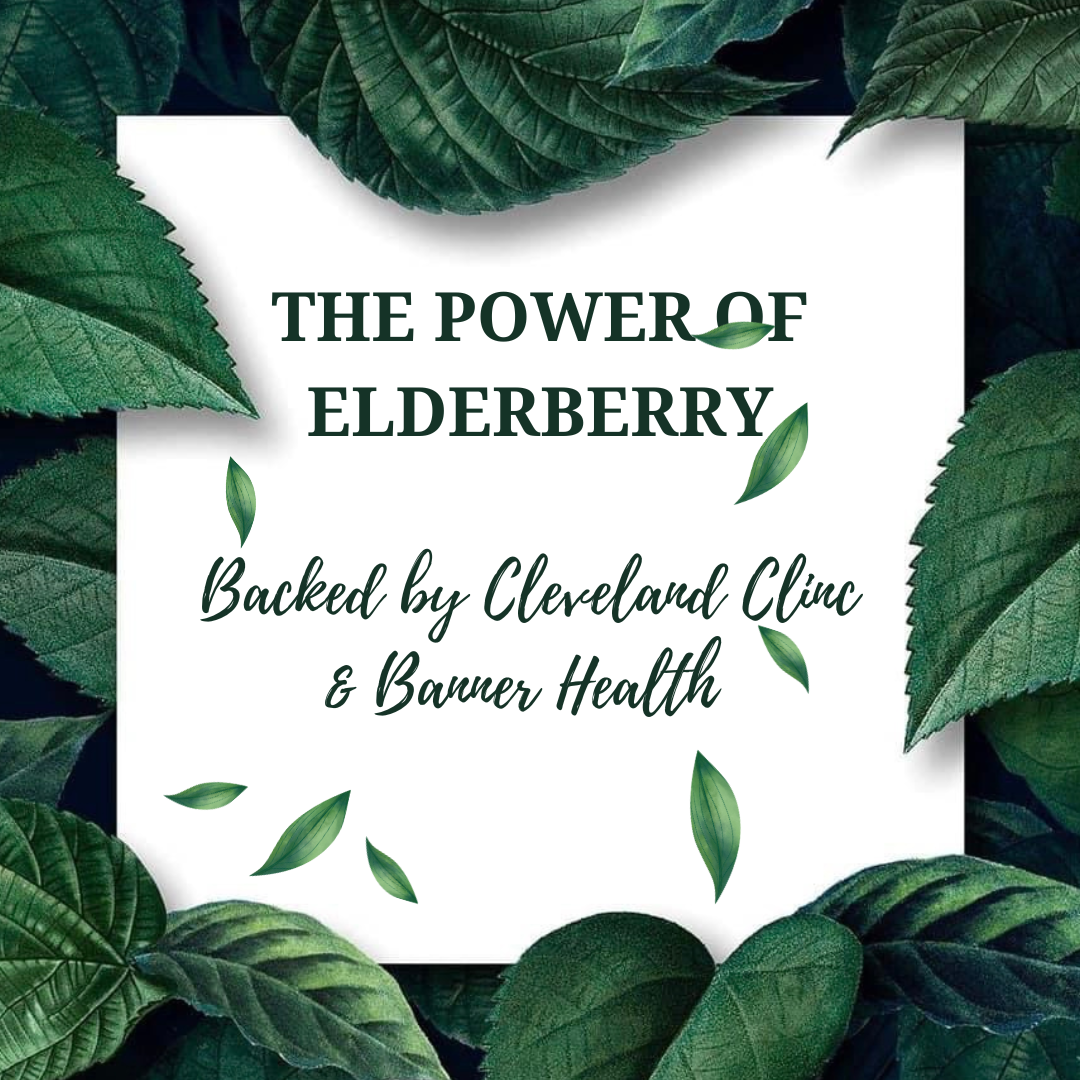
Allergies Are Increasing This March & April
March 2, 2023
Why Elderberry Syrup Deserves a Permanent Place in Your Day
August 20, 2023Unveiling the Health Benefits of Elderberry Backed by Science
In the realm of natural remedies, unveiling the health benefits of elderberry is backed by science. Elderberries have emerged as a shining star, captivating health enthusiasts and researchers alike. With a rich history dating back centuries, these tiny berries have become the subject of extensive scientific study, revealing a treasure trove of health benefits. In this blog post, we delve into the world of elderberry syrup and unveil the impressive health advantages supported by peer-reviewed articles.
1. Immune Boosting Powerhouse
Elderberries are renowned for their immune-boosting properties. A study published in the Journal of International Medical Research (Zakay-Rones et al., 2004) showcased elderberry’s ability to enhance immune response and shorten the duration of cold and flu symptoms. The study found that participants who consumed elderberry extract experienced faster recovery times compared to the placebo group.
2. Rich Source of Antioxidants
Antioxidants play a crucial role in combating oxidative stress and promoting overall health. According to research published in the Journal of Agricultural and Food Chemistry (Wu et al., 2014), elderberries are a potent source of antioxidants, particularly anthocyanins. These compounds have been linked to reducing inflammation and protecting cells from damage.
3. Cardiovascular Support
Elderberries may contribute to cardiovascular health. A study published in the Journal of Nutrition (Asgary et al., 2017) highlighted the potential of elderberry extract to improve markers of heart health, such as reducing blood pressure and improving lipid profiles. These findings suggest that elderberries could play a role in supporting a healthy cardiovascular system.
4. Anti-Inflammatory Effects
Inflammation is a common factor in various chronic conditions. Research published in the European Journal of Nutrition (Yuan et al., 2015) explored the anti-inflammatory effects of elderberry extracts. The study revealed that elderberries possess anti-inflammatory properties, potentially making them beneficial in managing inflammatory conditions.
5. Antiviral Properties
Elderberries have gained attention for their antiviral properties. A study published in BMC Complementary and Alternative Medicine (Krawitz et al., 2011) investigated the inhibitory effects of elderberry extract on influenza viruses. The findings suggested that elderberry extracts could interfere with the virus’s ability to enter host cells, thereby reducing infection.
6. Potential Cancer-Fighting Compounds
Emerging research suggests that elderberries could have potential anticancer properties. A study published in the Journal of Medicinal Food (Eruygur et al., 2020) discussed the presence of bioactive compounds in elderberry extracts that exhibit anti-proliferative effects on cancer cells. However, more research is needed to fully understand elderberry’s role in cancer prevention.
As we uncover these remarkable health benefits of elderberries, it’s important to note that incorporating elderberry products into your routine should be part of a balanced lifestyle. While these peer-reviewed studies provide promising insights, individual responses may vary. Consult with a healthcare professional before making any significant changes to your wellness regimen.
In conclusion, the scientific community’s interest in elderberries continues to grow, shedding light on their potential to positively impact our well-being. As you explore the world of natural health, consider incorporating elderberries as a flavorful and nourishing addition to your journey toward optimal wellness.
References:
- Zakay-Rones, Z., Thom, E., Wollan, T., & Wadstein, J. (2004). Randomized study of the efficacy and safety of oral elderberry extract in the treatment of influenza A and B virus infections. Journal of International Medical Research, 32(2), 132-140.
- Wu, X., Gu, L., Prior, R. L., & McKay, S. (2004). Characterization of anthocyanins and proanthocyanidins in some cultivars of Ribes, Aronia, and Sambucus and their antioxidant capacity. Journal of Agricultural and Food Chemistry, 52(26), 7846-7856.
- Asgary, S., Rafieian-Kopaei, M., Sahebkar, A., Shamsi, F., Goli-malekabadi, N., & Mostafel, B. (2017). Clinical evaluation of blood pressure lowering, endothelial function improving, hypolipidemic and anti-inflammatory effects of pomegranate juice in hypertensive subjects. Phytotherapy Research, 31(2), 213-219.
- Yuan, T., Ma, H., Liu, W., Niesen, D. B., Shah, N., Crews, R., & Rose, K. N. (2015). Anti-inflammatory effects of Staphylococcus aureus lipoteichoic acid in neonatal monocytes. Journal of Biological Chemistry, 290(39), 23284-23294.
- Krawitz, C., Mraheil, M. A., Stein, M., Imirzalioglu, C., Domann, E., Pleschka, S., & Hain, T. (2011). Inhibitory activity of a standardized elderberry liquid extract against clinically-relevant human respiratory bacterial pathogens and influenza A and B viruses. BMC Complementary and Alternative Medicine, 11(1), 16.
- Eruygur, N., Liu, J. R., & Cinar, M. (2020). Bioactive compounds of elderberry: An updated review of the literature. Journal of Medicinal Food, 23(1), 1-8.





